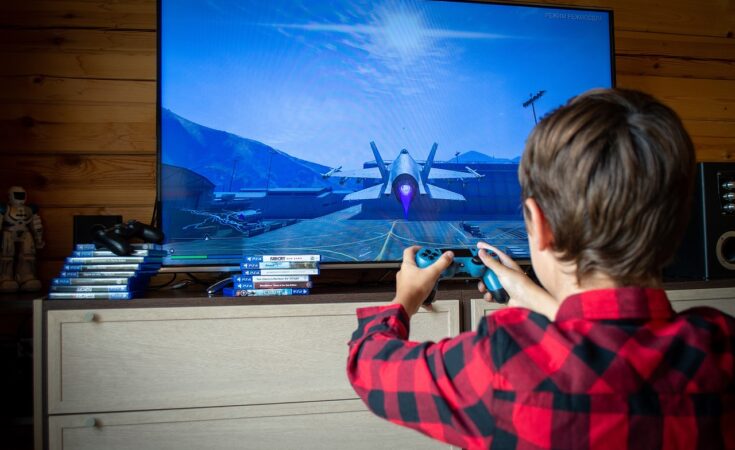Video games are now a central part of many children’s and teenagers’ lives. From immersive stories to fast-paced online battles, gaming has become more than just a pastime—it’s often a passion. But what happens when that passion begins to disrupt family life?
I was born in 1975. In 1982, at the age of seven, my aunt gave me my first handheld LCD screen game. It was about guiding the Smurfs through the magical forest and helping them collect mushrooms. You’d win once they had completed a nice little walk. It was a fun way to pass the time and even helped develop some reflexes.
I played it so much on the Paris–Marseille train—which, back then, took nine hours (the same amount of time it takes me to fly to India these days!)—that my thumbs knew the game’s path by heart, without even needing to look.
But things are more intrusive now…
Many parents find themselves facing repeated arguments, emotional outbursts, or growing distance when video games enter the picture. If this sounds familiar, you’re not alone. Understanding the roots of these tensions can help you manage them with more calm and connection.
One of the most common sources of conflict is time. Children often lose track of it when they’re playing, leading to incomplete homework, skipped meals, or late bedtimes. Requests to stop playing are rarely well-received and can quickly spiral into confrontation.
Games also come with emotional highs and lows. While victories can bring joy, losses often trigger frustration or anger. Some kids have difficulty regulating these feelings, which can spill over into family life.
Another factor is social disconnection. Although many games are played with others online, they can become a substitute for real-world relationships. This can leave parents worried about isolation or a lack of meaningful communication at home.
And then there’s the question of control. Setting limits on gaming can lead to daily power struggles, especially with older children and teens who crave independence. It’s easy for video games to become the battleground for deeper tensions.
So what can parents do?
The first step is to understand the appeal of gaming. Instead of dismissing it, take interest. Ask your child what they like about a game and watch them play. When kids feel seen and heard, they’re often more willing to listen in return.
Setting clear boundaries is also important, but try doing it collaboratively. Involving your child in the discussion builds trust and helps them take ownership of their time. Simple routines—like no gaming during meals or after a set hour—can be effective when agreed on together.
Encourage variety in their activities. Help them explore other hobbies or social opportunities, so that gaming is just one part of a full, balanced life.
It’s also essential to keep communication open. Instead of blaming the games, focus on behavior. Saying “You’ve been really upset after playing—what’s going on?” invites conversation, not conflict.
Finally, model the balance you hope to see. If we’re glued to our phones or laptops, it’s hard to ask our children to disconnect. Our example carries more weight than our rules.
Video games don’t have to be a source of stress. With understanding, structure, and empathy, they can coexist with a connected and peaceful home life. The goal isn’t to eliminate gaming—it’s to make sure it doesn’t replace relationships, routines, or well-being.
If gaming has become a challenge in your home, remember: you’re not alone. It’s possible to reset the dynamic and find a new rhythm, one where games are part of life—but not the center of it.


































